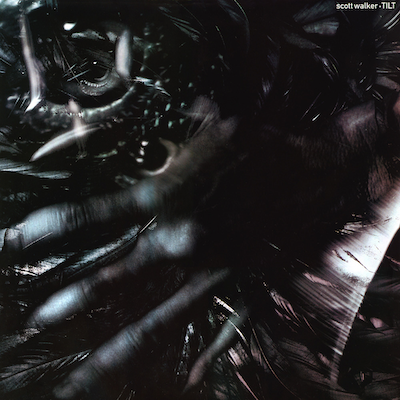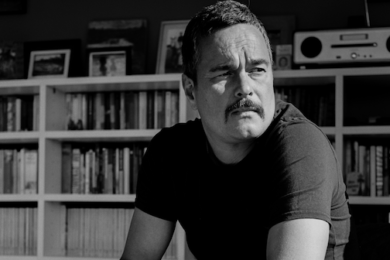13. Scott Walker

While I loved David Bowie more than Scott Walker, David was the one figure that encouraged me to keep fantasising about being a rock star, whereas Scott helped me keep my feet on the ground. The louche, sunny, and confident Scott of ‘Get Behind Me’ seemed unimprovable as an example of how not to be a tortured artist (too handsome, too well dressed, whatever it was, he had it, looking too cool to actually suffer for his art), as suffering for its own sake did not hold much appeal to me. Yet the reality that this worldly and assured individual should enter a period of silence and hermitiude, and then break it with an album as relaxed in its own insanity as Tilt, bought me up short and forced me to reconsider what the life I had chosen was all about.
On Tilt’s opener, Scott sounded like a writer trying to sing out of the window of his lonely garret, only to discover that on hearing his voice for the first time in years, he now sounded like someone else. ‘Farmer In The City’, though phrased and delivered in beautiful English, was so shrill that it could well have been sung in a different language for what it concedes to a conventional communication. I had already followed songs in languages I did not technically possess (Caetano Veloso’s ‘Cucurrucucú Paloma’, the Cocteau Twins’ ‘Blue Bell Knoll’), where the sound told a story without a plot, but ‘Farmer In The City’ was a near indecipherable story in which the listener’s attention turns back to the sound of the voice. In it I thought I could hear the sonance of someone left behind who deserved to do better than me, a lamentation of the surreal unevenness of fate, and an eerie forecast that there were bad outcomes in life. For me, Scott seemed to have sacrificed everything, including the success of the song, and sounding like his former self, in the hope of reaching truth. And that in doing so, had stated that an artistic life was going to involve at least as much self-sacrifice as it would fame, adoration and acclaim.


